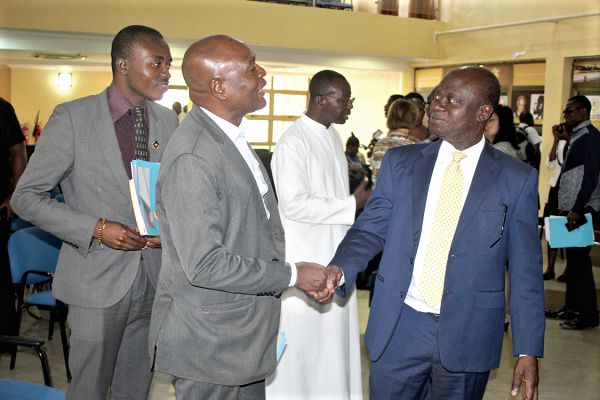The Minister of Planning, Professor George Gyan-Baffour, has said collective efforts are needed to achieve inclusive growth in the country.
He said that could be achieved through effective collaboration among all stakeholders to accelerate development.
A Gini Index, which measures inequalities in income brackets, showed that Ghana's income inequality increased from 37 per cent in 1992 to 43 per cent in 2017.
A higher Gini index indicates greater inequality.
The minister described the situation as "a serious threat to poverty reduction efforts and must be tackled".
Speaking at a technical review meeting on ‘Inclusive Development Forum’ in Accra yesterday, Prof. Gyan-Baffour, said: "We are counting on all of you — civil society groups, metropolitan, municipal and district assemblies (MMDAs), regional coordinating councils and our formidable public servants — to efficiently and effectively work together to achieve this inclusive growth.”
Forum
The forum was on the theme: "Inclusive development and public policy performance: Prospects for child responsiveness and the way forward".
It was a follow up to earlier ones held in 2016 and 2018 which focused on equity and inclusion provision in the country's social and economic transformation agenda, as well as the contribution of the oil and gas sectors and the partnership between the state and civil society.
Observations
Prof. Gyan-Baffour said in spite of the strides made by Ghana in achieving economic growth, inequality remained a challenge.
"Indeed, according to the Ghana Poverty and Inequality Report launched in 2018, Ghana's growth was matched by a significant reduction in poverty levels, which more than halved between 1992 and 2013," he added.
Purpose
A Senior Technical Advisor to the Ministry of Planning, Dr Kojo Mensah-Abrompa, explained that the meeting was to assess progress on commitments made at previous inclusive development fora and examine ways to guarantee better integration of child responsive perspectives into national development processes.
"Ghana, as a nation, attaches great importance to inclusive growth. We are determined to ensure that in our pursuit of growth and development, no one is left behind,” he said.
He noted that Ghana’s pursuit of poverty reduction policies between 2003 and 2005 yielded substantial progress, leading to a reduction in the incidence of poverty by half.
Dr Mensah-Abrampa, however, said the results were due mainly to redistribution rather than growth, hence a revision in the development agenda between 2006 and 2009, with emphasis on growth and poverty reduction.
“A review of our results also revealed that poverty was, indeed, reducing but inequality was increasing,” he added.
Focus on children
For her part, the UNICEF Representative in Ghana, Mrs Anne-Claire Dufay, said the government’s decision to focus on children in the programme was encouraging.
She said all studies and recent researches showed that investing in children was key to economic prosperity and equality.
"We believe that promoting equity, especially when it comes to children, will contribute to a better situation in Ghana and its economic growth.
It is a smart and wise investment," she added.

